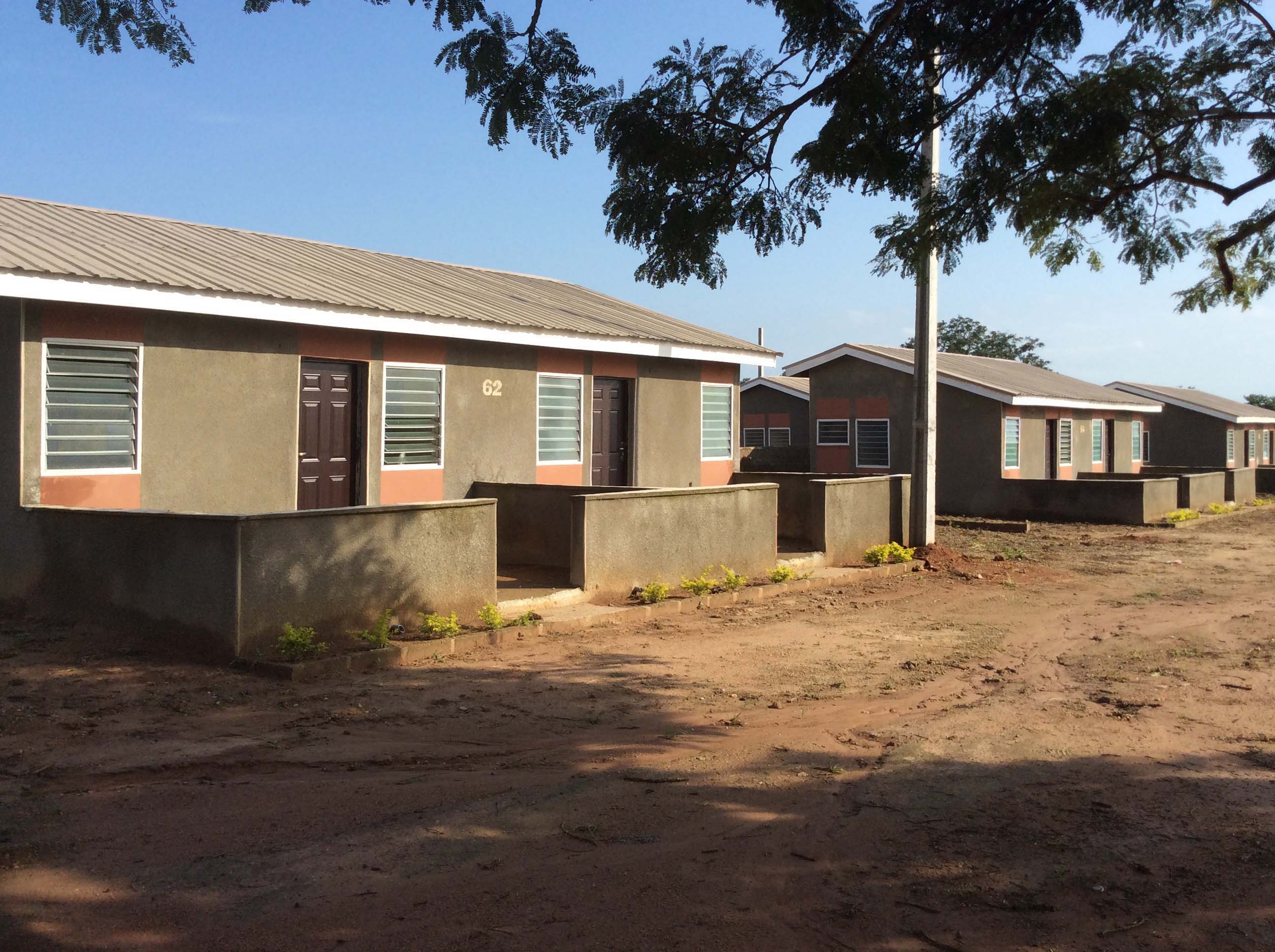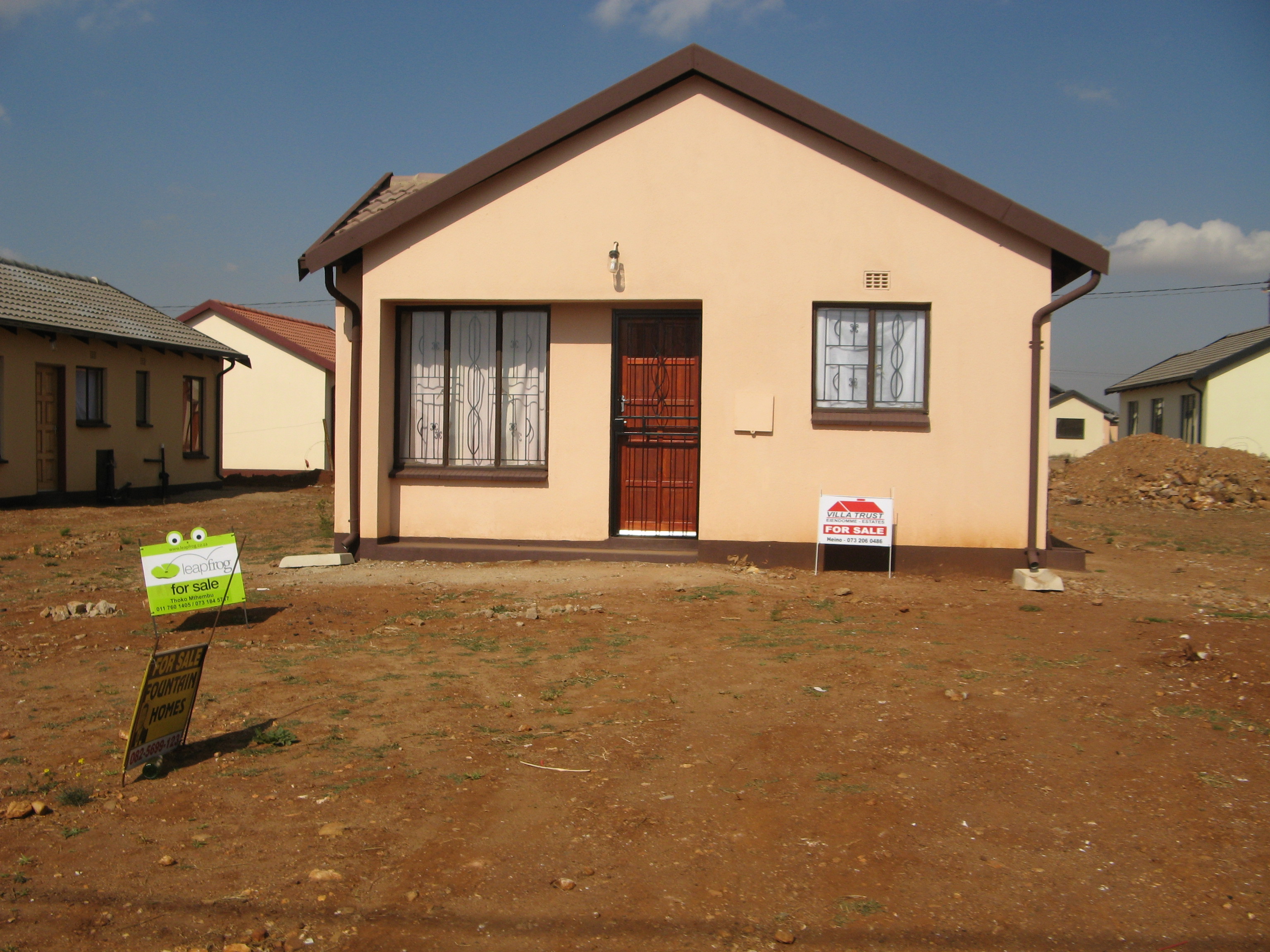Guide To Financing A House In Africa For Everyobody
The journey to owning a home in Africa can be both exciting and daunting. With a diverse and rapidly growing real estate market, understanding the landscape of housing finance is crucial for prospective homeowners. Financing a house in Africainvolves navigating through various options, each with its unique advantages and challenges.
The Role Of Mortgage Financing In Africa
Mortgage financing is a critical component of the housing sector in Africa. It allows individuals to purchase a home by borrowing money from a financial institution, typically a bank, and repaying it over an agreed period, with interest. The presence of mortgage financinghas enabled many Africans to acquire property that would otherwise be unaffordable if paid for upfront.
However, the mortgage market in Africa is still developing and faces several constraints. These include high interest rates, stringent eligibility criteria, and a limited number of mortgage providers. Despite these challenges, the mortgage industry is gradually evolving, with banks and financial institutions beginning to tailor products to meet the needs of a broader customer base.
Cooperative Housing Societies As An Alternative
For those who find traditional mortgage financing out of reach, cooperative housing societies offer a viable alternative. These societies are member-driven organizations where individuals come together to pool resources for the collective purpose of acquiring homes. Members contribute funds regularly and can access loans to finance their home purchase at more favourable terms than those offered by commercial banks.
Cooperative housing societies have gained popularity due to their flexible repayment plans and lower interest rates. They also foster a sense of community and shared responsibility, which can be a strong motivating factor for members to keep up with their financial commitments.
The Impact Of Government-Backed Mortgage Programs
Recognizing the importance of home ownership for economic stability and growth, several African governments have implemented mortgage programs to assist citizens. These government-backed schemes often provide subsidized loans with lower interest rates and extended repayment periods. They aim to make housing more accessible, especially for low to middle-income earners.
Such programs can significantly reduce the financial burden on homebuyers and stimulate the housing market by increasing demand. However, the success of these initiatives largely depends on their implementation and the government's ability to sustain funding.
Personal Financing Strategies For Home Ownership
Owning a home is a significant milestone for many individuals and families across Africa. However, the journey to home ownership often requires careful financial planning and strategy. Here are some personal financing strategies that can help prospective homeowners in Africa achieve their dream of owning a home.
The Importance Of Personal Savings
Personal savingsare the bedrock of any home financing plan. It is crucial to start saving early to accumulate enough funds for a down payment on a house. A solid savings plan should include:
- Setting clear savings goals: Determine the amount needed for a down payment and set a timeline to achieve this goal.
- Budgeting: Analyze your income and expenses to see where you can cut back and save more.
- Automating savings: Set up automatic transfers to a dedicated savings account to ensure consistent contributions.
- High-interest savings accounts: Consider placing your savings in an account that offers a higher interest rate to grow your funds faster.
Leveraging Family And Friends For Support
In many African cultures, family and community play a significant role in financial support. Here are ways to leverage this support:
- Gifts and loans: Family members may be willing to gift or loan money to help with the purchase of a home.
- Pooling resources: Some families choose to pool their resources together to buy property, which can be more manageable than doing it alone.
- Moral support: Beyond financial help, the encouragement and advice from family and friends can be invaluable during the home-buying process.
The Benefits And Risks Of Self-Financing
Self-financing, or using one's own funds to finance a home purchase, can be a viable option for some. The benefits include:
- No interest payments: Without a mortgage, you avoid paying interest, which can significantly increase the overall cost of a home.
- Full ownership: You have full ownership of the property from the outset, without the worry of foreclosure.
However, Self-financing Also Comes With Risks:
- Liquidity issues: Tying up a large portion of your finances in property can leave you with limited cash for other needs or emergencies.
- Opportunity cost: The funds used for self-financing could potentially have been invested elsewhere for a higher return.
When considering self-financing, it is essential to weigh these benefits and risks carefully to determine if it is the right strategy for your financial situation.
Innovative Financing Solutions In The African Market
The African housing market is evolving rapidly, and with it, innovative financing solutions are emerging to meet the diverse needs of potential homeowners. These solutions are designed to bridge the gap between traditional mortgage financing and the unique challenges faced by homebuyers in Africa. Here, we explore some of the most promising and creative financing options that are changing the landscape of home ownership on the continent.
The Emergence Of E-Mortgage Platforms
E-mortgage platformsare a revolutionary development in the African housing finance sector. These digital platforms offer a streamlined and user-friendly approach to securing a mortgage, making the process more accessible to a broader audience. By leveraging technology, e-mortgage platforms can provide:
- Quick and efficient application processes: Homebuyers can apply for a mortgage from the comfort of their own homes, without the need for time-consuming visits to bank branches.
- Comparative tools: Users can compare different mortgage products and rates, ensuring they find the best deal suited to their financial situation.
- Financial education: Many platforms offer resources to help buyers understand the intricacies of mortgages, empowering them with the knowledge to make informed decisions.
Real Estate Investment Trusts (REITs) For Passive Investors
Real Estate Investment Trusts (REITs)present an opportunity for individuals to participate in the property market without the need to directly purchase or finance a home. REITs are companies that own, operate, or finance income-generating real estate across a range of property sectors. Investing in a REIT allows individuals to earn dividends from real estate investments without the hassle of managing the properties. The benefits include:
- Diversification: By investing in a portfolio of properties, investors can spread their risk.
- Liquidity: REITs are often traded on major stock exchanges, making it easier to buy and sell shares compared to physical real estate.
- Accessibility: With relatively low entry points, REITs make real estate investment feasible for those with limited capital.
The Rise Of Crowdfunding In Real Estate
Crowdfunding is a method of raising capital through the collective effort of friends, family, customers, and individual investors. This approach taps into the collective efforts of a large pool of individuals and is typically done via internet platforms. In the context of real estate, crowdfunding has become an innovative way to finance property purchases and development projects. It offers several advantages:
- Lower investment thresholds: Individuals can contribute smaller amounts of money, making it possible for more people to invest in real estate projects.
- Shared risk: The risk is spread across a larger number of investors.
- Potential for high returns: While there are risks involved, successful real estate projects can provide substantial returns to investors.
Crowdfunding platforms in Africa are gaining traction, providing a new avenue for both investors and homebuyers to finance property transactions. However, it is important to conduct thorough research and understand the terms and conditions of each crowdfunding opportunity, as the regulatory environment for such platforms can vary across different African countries.
The African housing finance landscape is undoubtedly complex, but the advent of innovative financing solutions is making home ownership more attainable for many. E-mortgage platforms, REITs, and crowdfunding are just a few examples of the creative approaches being employed to overcome traditional barriers to financing a house in Africa. As these solutions continue to develop and mature, they hold the potential to significantly transform the market, making the dream of owning a home a reality for a larger segment of the population.
Navigating The Mortgage Application Process
When it comes to financing a house in Africa, navigating the mortgage application process can be a daunting task. However, with the right information and preparation, you can approach this process with confidence. Here's a step-by-step guide to help you understand what's involved in securing a mortgage for your dream home in Africa.
Exploring Mortgage Options With African Banks
The first step in the mortgage application process is to explore the various mortgage options available to you. African banks offer a range of mortgage products designed to meet the needs of different homebuyers. It's important to compare the offerings from several banks to find the one that best suits your financial situation.
- Interest Rates: Look for competitive interest rates that will not overburden you in the long term.
- Repayment Period: Consider the length of the mortgage repayment period, which can vary from 10 to 30 years.
- Loan-to-Value Ratio (LTV): Understand the maximum percentage of the property's value that the bank is willing to finance.
- Additional Fees: Be aware of any processing fees, legal fees, or other charges that may apply.
Understanding Down Payment Requirements
A down payment is a significant part of purchasing a home, and it's usually a percentage of the property's total cost that you must pay upfront. In Africa, down payment requirements can vary widely, but they typically range from 10% to 30% of the property's value.
- Saving for a Down Payment: Start saving early to accumulate the necessary funds for your down payment.
- Negotiating Down Payments: In some cases, you may be able to negotiate the down payment amount with the seller or developer.
Preparing For Interest Rates And Loan Terms
Interest rates and loan terms are critical factors that will affect your monthly mortgage payments and the total cost of your loan. It's essential to understand these elements before signing a mortgage agreement.
- Fixed vs. Variable Rates: Decide whether a fixed interest rate (which remains the same throughout the loan term) or a variable rate (which can fluctuate with market conditions) is more suitable for you.
- Loan Term: A longer loan term means lower monthly payments but more interest paid over time, while a shorter term means higher monthly payments but less interest overall.
- Amortization Schedule: Review the amortization schedule, which outlines how each payment is split between paying off the principal and the interest.
Preparing Your Documentation
Banks will require a range of documents to process your mortgage application. Being prepared with the necessary paperwork can speed up the process. Commonly required documents include:
- Proof of income (e.g., payslips, bank statements)
- Identification documents (e.g., passport, national ID)
- Proof of residence (e.g., utility bills)
- Property details (e.g., sale agreement, title deed)
Understanding The Approval Process
Once you've submitted your application and all required documents, the bank will assess your financial stability and creditworthiness. This process can take several weeks. The bank will consider your income, employment status, credit history, and the value of the property you intend to purchase.
- Credit Score: Ensure you have a good credit score, as this will significantly impact the bank's decision.
- Property Valuation: The bank will conduct a valuation of the property to ensure it's worth the investment.
- Approval Time: Ask the bank for an estimated timeline for approval so you can plan accordingly.
Closing The Deal
After your mortgage application is approved, there are still a few steps to complete before you can close the deal and move into your new home.
- Signing the Mortgage Agreement: Review the mortgage agreement carefully before signing. Ensure you understand all the terms and conditions.
- Paying Closing Costs: Be prepared to pay any closing costs, which may include legal fees, transfer taxes, and insurance premiums.
- Finalizing the Purchase: Once everything is in order, the final step is to finalize the purchase with the seller, transfer the title, and take possession of your new home.
Navigating the mortgage application process in Africa requires careful planning and attention to detail. By understanding the steps involved and preparing accordingly, you can secure the financing needed to purchase your dream home. Remember to take your time, ask questions, and seek professional advice if needed to ensure a smooth and successful home-buying experience.
Government Initiatives And Sustainable Financing
Government-Backed Financing Options For Homebuyers
Across the African continent, governments are increasingly recognising the importance of affordable housing for economic stability and growth. To address the housing deficit, many countries have introduced government-backed financing options to assist citizens in acquiring their own homes. These initiatives often come in the form of subsidised loans, grants, or partnerships with financial institutions to provide lower interest rates.
For instance, the National Housing Fund (NHF) in Nigeria is a scheme that provides financial assistance to contributors at an affordable interest rate. Similarly, the Kenya Government’s Affordable Housing Programme aims to deliver low-cost homes with accessible financing options. Homebuyers should explore these government-backed programs as they can significantly reduce the financial burden of purchasing a home.
Green Mortgage Schemes And Their Benefits
With the growing concern for environmental sustainability, green mortgage schemes are becoming a popular trend in Africa's housing finance landscape. These schemes offer incentives to homebuyers who invest in energy-efficient homes or those who plan to make green improvements to their properties. Benefits of green mortgages include lower interest rates, longer repayment periods, and sometimes, additional funds for eco-friendly upgrades.
The Egyptian Mortgage Refinance Company (EMRC), for example, has introduced green mortgage products to promote sustainable building practices. By opting for a green mortgage, not only do homeowners contribute to the environment, but they also enjoy the long-term cost savings from reduced energy consumption.
The Role Of International Investment In Housing Finance
International investment plays a crucial role in the development of housing finance systems in Africa. Foreign investments bring in much-needed capital, which can be used to fund large-scale housing projects and mortgage lending activities. These investments often come with expertise and technology transfer, which can help improve the local housing finance market's efficiency and accessibility.
Development finance institutions such as the World Bank and the African Development Bank have been instrumental in funding housing projects and providing technical assistance to mortgage lenders. Additionally, partnerships with international investors can lead to the creation of mortgage liquidity facilities, which provide long-term funding to mortgage lenders and help stabilise the housing finance market.
Financing A House In Africa - FAQs
Does Africa Have Mortgages?
Africa does have mortgage markets, including various countries that offer mortgage financing options. Mortgage availability and terms can vary from country to country, depending on the economic conditions, financial systems, and regulatory frameworks in place.
Can You Finance A House In Nigeria?
In Nigeria, it is possible to finance a house through mortgage options provided by financial institutions. Several banks and mortgage institutions offer home financing solutions, allowing individuals to purchase or build homes.
How Much Is Mortgage In Nigeria?
When considering a mortgage in Nigeria, factors such as interest rates and associated fees may differ based on the lender, mortgage type, and current market conditions. Interest rates are commonly presented as an annual percentage, and the duration of mortgage terms can vary. For the most precise and current information on mortgage rates and terms in Nigeria, individuals seeking a mortgage are encouraged to reach out directly to banks or mortgage institutions. To delve deeper into financial insights from Nigeria, you can explore valuable resources from The Nigerian Blogger here.
Conclusion
By leveraging these government initiatives and sustainable financing options, prospective homeowners in Africa can navigate the often complex journey of financing a house with greater ease and confidence. It is essential for homebuyers to stay informed about the various programs and schemes available to them, as these can significantly impact the affordability and sustainability of their dream home. With the right approach and support, owning a home in Africa can become a reality for many.



